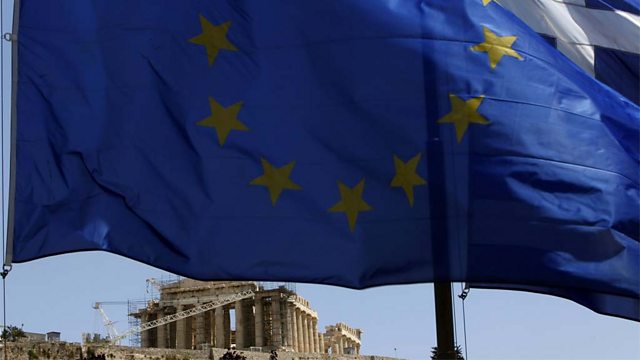Greece and Indonesia
Pascale Harter with wit and analysis from around the world. Manuela Saragosa meets Greeks irked by how they're seen abroad; Simon Worrall finds an Indonesian clove tree and symbol of anti-colonialism.
Insight, wit and analysis from ÃÛÑ¿´«Ã½ correspondents, journalists and writers around the world. Introduced by Pascale Harter. In this edition:
From the cradle of Europe ... to its margins?
It was the Ancient Greeks who came up with the very name "Europa" - a mythological princess whisked off to the island of Crete by a bull. But in today's Europe, the continent of the 21st century, what role can Greece continue to play? Is being European really just a question of being able to afford it?
Manuela Saragosa breaks bread with Greeks struggling to see clearly where they now sit in Europe.
The rogue clove which defied an empire
Of course European powers have vied for influence for many centuries - and not just within Europe itself. More than 350 years ago, many held far-flung islands on distant seas to ransom, in a ruthless battle to control the global trade in spices.
Simon Worrall went all the way to a mountain top in Indonesia to find a particular tree, still alive after more than 300 years, with an extraordinary story of imperialism and resistance.
(Image: An E.U. flag flutters in front of the monument of Parthenon on Acropolis Hill, Athens. Credit: Reuters / John Kolesidis)
Last on
More episodes
Previous
Broadcasts
- Mon 25 Jun 2012 07:50GMTÃÛÑ¿´«Ã½ World Service Online
- Mon 25 Jun 2012 10:50GMTÃÛÑ¿´«Ã½ World Service Online
- Mon 25 Jun 2012 14:50GMTÃÛÑ¿´«Ã½ World Service Online
- Tue 26 Jun 2012 00:50GMTÃÛÑ¿´«Ã½ World Service Online
- Tue 26 Jun 2012 03:50GMTÃÛÑ¿´«Ã½ World Service Online

